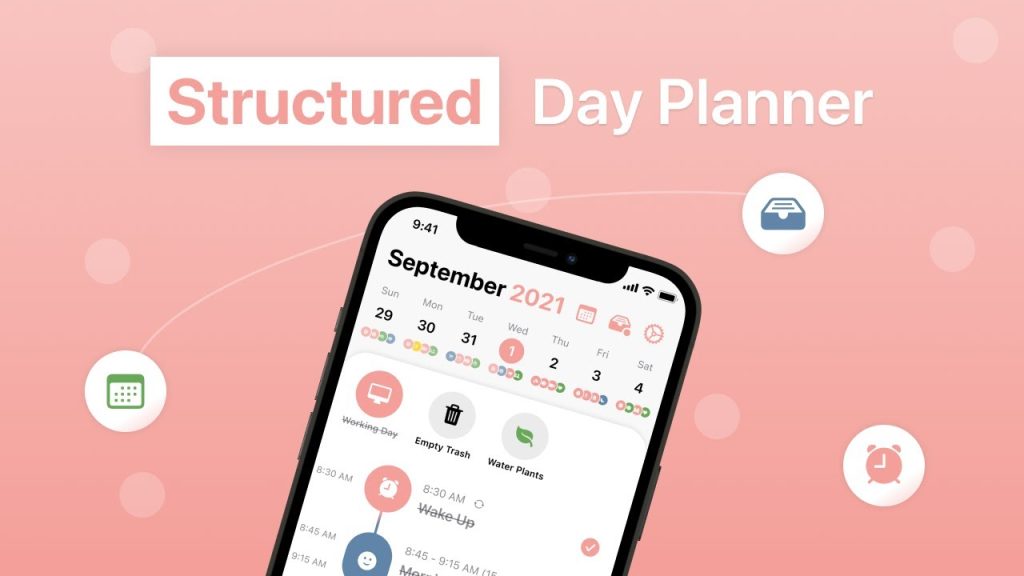
The Importance of Structured App Review A Comprehensive Guide for Users
In today’s fast-paced world, our smartphones and devices have become an integral part of our daily lives. From managing our schedules to staying connected with loved ones, there is an app for almost everything. However, with the overwhelming number of apps available in the market, it can be challenging to find the right one for your needs. This is where structured app review comes into play.
Structured app review is a systematic and comprehensive evaluation process that provides users with detailed information about an app’s features, usability, and overall performance. It helps users make informed decisions when selecting an app, making their experience more efficient and enjoyable. In this article, we will delve deeper into the importance of structured app review and how it benefits both users and developers.
Why You Need Structured App Review

With thousands of new apps being released every day, it is essential to have a reliable system in place to evaluate and assess them accurately. This is where structured app review comes into the picture. Let’s take a look at some of the key benefits of using structured app review:
1. Provides Detailed Information
One of the most significant advantages of structured app review is that it provides users with detailed and accurate information about an app. Instead of relying on promotional content or biased reviews, structured app review offers an objective analysis of an app’s features, functionality, and performance. It also includes screenshots and videos to give users a realistic preview of the app.
By having access to thorough and unbiased information, users can make better decisions when choosing an app for their needs. They can also avoid the hassle of downloading multiple apps before finding the right one, saving time and effort.
2. Helps in Identifying Reliable Apps
In today’s digital landscape, there are numerous cases of malicious apps that pose security threats to users’ devices. These apps often slip through the cracks and make their way into app stores, making it challenging to identify them. However, with structured app review, users can rest assured that they are downloading a reliable and secure app.
Structured app reviews often include information about an app’s security protocols, privacy policies, and data collection practices. This helps users determine the credibility of an app and avoid downloading apps that may potentially harm their devices.
3. Facilitates User Feedback
Structured app review also serves as a platform for users to provide feedback on their experience with an app. This is beneficial for both users and developers as it allows for continuous improvement of the app. Users can share their suggestions or concerns, while developers can use this feedback to enhance their app’s features and address any issues reported by users.
The feedback system in structured app review also encourages developers to be more responsive to users’ needs, leading to better user satisfaction and loyalty towards the app.
4. Encourages Healthy Competition
With structured app review, developers can have a better understanding of what users look for in an app and what they find appealing. This allows them to benchmark their app against their competitors and strive to offer a better user experience. As a result, structured app review promotes healthy competition among developers, ensuring that users have access to high-quality apps.
Understanding the Components of Structured App Review
Now that we’ve established why structured app review is essential let’s take a closer look at its components. A structured app review typically consists of four main elements:
- Description: This section provides an overview of the app’s features, functionality, and purpose. It gives users an idea of what to expect from the app and whether it aligns with their needs.
- User Interface (UI) and User Experience (UX): This component evaluates the app’s design and how user-friendly it is. It includes factors such as navigation, aesthetics, and ease of use. UI and UX play a crucial role in determining an app’s success, making this component a vital part of structured app review.
- Performance: This section focuses on how well the app functions and performs its intended tasks. It includes factors such as speed, stability, and responsiveness. Users want apps that are efficient and do not lag or crash, making performance evaluation critical in structured app review.
- Security and Privacy: As mentioned earlier, security and privacy are major concerns for users when downloading apps. This component evaluates an app’s data collection practices, privacy policies, and security protocols to ensure that users’ personal information is safe.
The Process of Structured App Review

Structured app review follows a systematic process to evaluate and assess apps accurately. Let’s take a look at the steps involved in structured app review:
- Research and Planning: The first step in structured app review is to research and plan. This involves identifying the key components to be evaluated, defining criteria for each element, and creating a review template. It also includes researching the app’s features, design, and functionality to provide users with accurate and up-to-date information.
- Evaluation and Testing: Once the review template is ready, the next step is to evaluate the app. This involves downloading the app and testing it for its various features and functionalities. It also includes checking for any bugs or glitches and assessing the app’s overall performance.
- Writing the Review: After evaluating and testing the app, the next step is to write the review. This includes providing a detailed description of the app, evaluating its user interface and experience, performance, and security and privacy protocols. The review should be comprehensive, highlighting both the positives and negatives of the app.
- Publishing and Sharing: Once the review is complete, it is published and shared with users. The review can be posted on various platforms such as app stores, review websites, or blogs. Sharing the structured app review with a wider audience helps users make informed decisions when choosing an app.
Best Practices for Structured App Review
To ensure that structured app reviews are accurate and reliable, there are some best practices that should be followed:
- Be Objective: The key to a high-quality structured app review is objectivity. It is crucial to provide an unbiased evaluation of the app and avoid any promotional or misleading content.
- Test the App Thoroughly: To provide an accurate assessment, it is essential to test the app thoroughly and explore all its features and functionalities. This includes checking for any bugs, glitches, or performance issues.
- Stay Up-to-Date: With the constant updates and new releases, it is crucial to stay up-to-date with the latest versions of the app. This ensures that the review is accurate and reflects the app’s current features and performance.
- Consider User Feedback: Taking into account user feedback helps in providing a well-rounded and comprehensive review. It also promotes healthy communication between developers and users.
- Use Visual Aids: Including screenshots and videos in structured app reviews provide users with a better understanding of the app’s user interface and features. This also adds more credibility to the review.
How Structured App Review Benefits Developers

Structured app review not only benefits users but also offers numerous advantages to developers. Let’s take a look at how developers can leverage structured app review to improve their apps and attract more users:
1. Identifies Areas for Improvement
Structured app review provides developers with valuable insights into what users like and dislike about their app. By analyzing the review, developers can identify areas where their app needs improvement. This allows them to focus their efforts on enhancing these features, making the app more appealing to users.
2. Encourages Better Communication with Users
Structured app review serves as a platform for developers to interact with users and gather feedback. This promotes better communication between developers and users, leading to increased user satisfaction and loyalty. Developers can also use this feedback to address any issues or concerns raised by users, further improving the app’s overall performance.
3. Helps in Understanding User Needs
By analyzing structured app reviews, developers can gain a better understanding of what users expect from their app. This helps them align their app’s features and functionalities with users’ needs, making it more appealing and relevant. By meeting users’ requirements, developers can attract more users and increase their app’s popularity.
The Future of Structured App Review
In today’s digital age, where the number of apps continues to grow exponentially, the need for structured app review has become even more critical. As technology advances, so does the complexity of apps, making it challenging to evaluate and assess them accurately. Traditional methods of app review are no longer sufficient, and structured app review provides a more systematic and comprehensive approach.
With the increasing emphasis on security and privacy, structured app review will continue to play an essential role in ensuring that users have access to reliable and secure apps. It will also promote healthy competition among developers, leading to continuous innovation and improvement in the app industry.
Conclusion
In conclusion, structured app review is a crucial aspect of the app world that benefits both users and developers. It offers users detailed and accurate information about an app’s features, functionality, and performance, making it easier for them to find the right app for their needs. For developers, structured app review serves as a platform for feedback, helps them improve their app, and attracts more users.
With the rapid growth of the app industry, the importance of structured app review will continue to increase. It offers a reliable and efficient way to evaluate and assess apps, ensuring that users have access to high-quality and secure apps. Whether you are a user looking for the perfect app or a developer striving to improve your app, structured app review is an invaluable tool that will continue to benefit both parties in the future.


